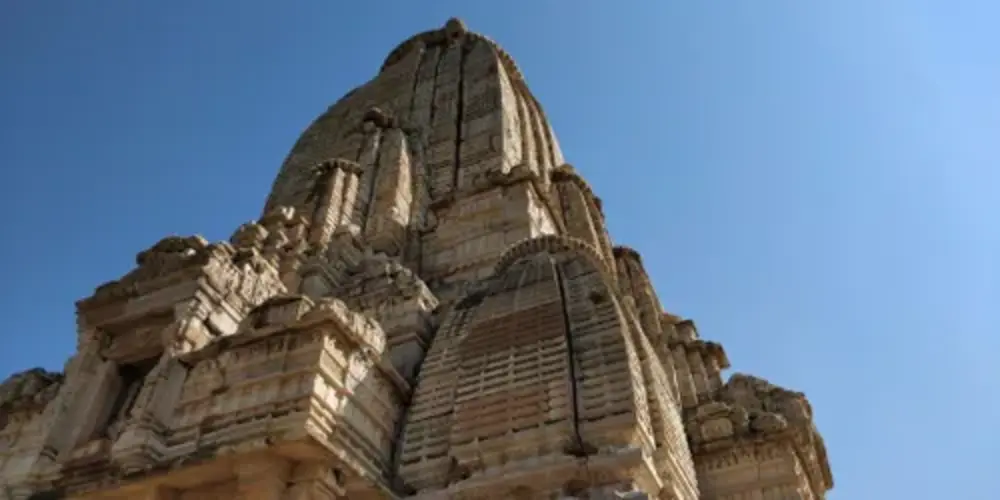
Meerabai Temple: A Tribute to Devotion in Chittorgarh
Meerabai Temple in Chittorgarh, Rajasthan, stands as a significant spiritual and historical site dedicated to Meerabai, the renowned poetess and saint of the Bhakti movement. Known for her deep devotion to Lord Krishna and her soulful compositions, Meerabai is celebrated as one of the most prominent female saints in Indian history. The temple dedicated to her in Chittorgarh honors her legacy and serves as a place of reverence for devotees.
Historical and Spiritual Significance
Meerabai (1498-1547) was a Rajput princess of the Mewar dynasty, who became a saint through her profound devotion to Lord Krishna. Her devotional songs, known as bhajans, are widely cherished and have influenced the Bhakti movement profoundly. The Meerabai Temple in Chittorgarh is a tribute to her unwavering devotion and spiritual contributions.
Key Highlights of the Temple’s Significance:
Devotion to Krishna: The temple honors Meerabai’s deep and unwavering devotion to Lord Krishna. Her life and teachings are celebrated through prayers, hymns, and cultural events held at the temple.
Historical Legacy: The temple stands as a monument to Meerabai’s legacy and the rich cultural and religious heritage of Chittorgarh and the Mewar region.
Architectural Features
Traditional Design:
- The Meerabai Temple features traditional Rajasthani architectural elements. It showcases intricate carvings, elegant arches, and decorative motifs characteristic of temples built during the period.
Main Sanctum:
- The central sanctum houses an idol or representation of Lord Krishna, often depicted in a form that Meerabai worshipped. The sanctum is the focal point of worship and devotion, adorned with offerings and traditional decorations.
Ornate Carvings:
- The temple’s walls and pillars are adorned with detailed carvings depicting scenes from Meerabai’s life and her devotion to Krishna. These carvings contribute to the temple’s aesthetic and historical value.
Prayer Hall:
- The temple includes a spacious prayer hall designed to accommodate a large number of devotees during worship services. The hall is a serene space for prayer, meditation, and communal gatherings.
Courtyard:
- The temple complex may feature an open courtyard, which serves as a space for festivals, processions, and community events. The courtyard enhances the temple’s peaceful environment.
Religious Practices and Festivals
Daily Rituals: The Meerabai Temple conducts daily rituals and poojas (prayer ceremonies) dedicated to Lord Krishna. Devotees engage in singing Meerabai’s bhajans, offering prayers, and seeking blessings.
Major Festivals: The temple celebrates major Hindu festivals and events related to Meerabai with great devotion, including:
- Janmashtami: The festival celebrating the birth of Lord Krishna, marked by special prayers, devotional songs, and cultural performances.
- Radhashtami: Celebrating the birth of Radha, Krishna’s divine consort, with special prayers and bhajans.
- Meerabai Jayanti: The birthday of Meerabai is observed with special ceremonies, devotional singing, and gatherings in her honor.
Local Observances: The temple also observes other local and regional festivals, providing a space for the community to come together and celebrate their faith.
Practical Information for Visitors
Timing: The Meerabai Temple is generally open to visitors throughout the day. Specific timings for rituals and ceremonies may vary, so it is advisable to check with temple officials for accurate information before planning your visit.
Dress Code: Modest attire is recommended when visiting the temple. Visitors should wear clothing that covers the shoulders and knees. Removing shoes before entering the temple premises is required.
Photography: Photography inside the temple may be restricted to maintain its sanctity. It is best to inquire about the rules upon arrival and seek permission before taking photographs.
Respect: Observing respectful behavior is essential when visiting religious sites. This includes maintaining silence during prayers, avoiding disturbances, and following any guidelines set by the temple authorities.
Getting There
Meerabai Temple is located in Chittorgarh, which is accessible by various modes of transportation:
By Road: Chittorgarh is well-connected by road from major cities in Rajasthan. You can travel to Chittorgarh by taxi or bus from cities such as Jaipur (approximately 310 kilometers away) or Udaipur (about 120 kilometers away). Local transport within Chittorgarh can be used to reach the temple.
By Rail: Chittorgarh Railway Station is a major railway hub with connectivity to various cities. From the railway station, you can hire a taxi or use local transport to reach the Meerabai Temple.
By Air: The nearest airport is in Udaipur, about 120 kilometers away. From Udaipur, you can travel to Chittorgarh by road.
The Meerabai Temple in Chittorgarh is a sacred site dedicated to Meerabai’s devotion and her profound impact on the Bhakti movement. With its traditional design, intricate carvings, and dedication to Lord Krishna, the temple provides a serene environment for worship and reflection. A visit to the Meerabai Temple offers an opportunity to connect with the rich cultural and spiritual traditions of Chittorgarh, honoring the legacy of one of India’s most revered saints.
